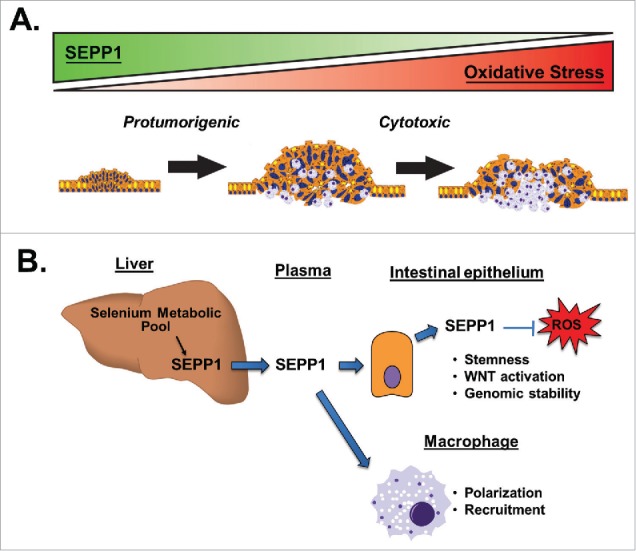Figure 1.

Roles for selenoprotein P (SEPP1) in intestinal homeostasis and tumorigenesis. Our results from azoxymethane and repeated dextran sodium sulfate (AOM/DSS) experiments demonstrated increased tumor numbers in mice heterozygous for Sepp1 (Sepp1+/−), which parallels the protumorigenic effects of increased oxidative injury (Fig. 1A). In contrast, we found relatively few tumors in global Sepp1 knockout mice, most likely because of critically high levels of oxidative damage and cytotoxicity. These studies also identified tissue-specific effects of SEPP1 that may independently contribute to tumorigenesis (Fig. 1B). We determined that epithelial-derived SEPP1 inhibits reactive oxygen species (ROS) production and contributes to genome stability, stemness, and WNT activity in ex vivo cultures. SEPP1 expression also affected macrophage populations, as we identified altered recruitment and skewed polarization in the setting of Sepp1 heterozygosity. Together, these results illustrate a significant role for SEPP1 in both intestinal homeostasis and disease development.
